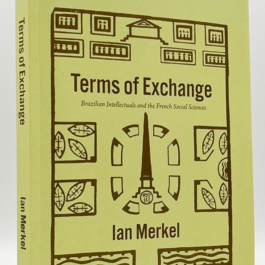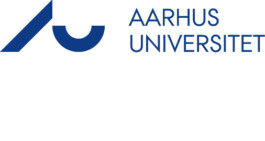Terms of Exchange in the Social Sciences: Brazil and France, 1934-1964


Seminar (book-talk) with Ian Merkel (Alexander von Humboldt Fellow at Freie Universität Berlin)
Would the most recognizable ideas in the French social sciences have developed without the influence of Brazilian intellectuals? While any study of Brazilian social sciences acknowledges the influence of French scholars, Ian Merkel argues the reverse is also true: the “French” social sciences were profoundly marked by Brazilian thought, particularly through the University of São Paulo. Through the idea of the “cluster,” Merkel traces the intertwined networks of Claude Lévi-Strauss, Fernand Braudel, Roger Bastide, and Pierre Monbeig as they overlapped at USP and engaged with Brazilian scholars such as Mário de Andrade, Gilberto Freyre, and Caio Prado Jr.
Through this collective intellectual biography of Brazilian and French social sciences, Terms of Exchange reveals connections that shed new light on the Annales school, structuralism, and racial democracy, even as it prompts us to revisit established thinking on the process of knowledge formation through fieldwork and intellectual exchange. At a time when canons are being rewritten, this book reframes the history of modern social scientific thought.
Ian Merkel is an Alexander von Humboldt Fellow at Freie Universität Berlin’s department of history, the Friedrich-Meinecke-Institut. He received a dual Ph.D. between New York University and the University of São Paulo in 2018 and has taught at Cornell University, the University of Miami, among other institutions. Broadly speaking, his work in intellectual history examines exchange across Latin America and European empires with an emphasis on the emergence of the social sciences. His current research is centered around the archaeologist Laurette Séjourné and the cultural avant-garde of Mexico in the 1950s and 1960s.
(Photo: book cover)
⬤ June 16th 2022, 16.15-17.30 CEST. Venue: Aarhus University, Building 1467, Room 616. To join the Seminar, please send us an email with your name and affiliation to global-inequality@cas.au.dk no later than June 16th at 12.00 (CEST).
Terms of Exchange in the Social Sciences: Brazil and France, 1934-1964

Seminar (book-talk) with Ian Merkel (Alexander von Humboldt Fellow at Freie Universität Berlin)
Would the most recognizable ideas in the French social sciences have developed without the influence of Brazilian intellectuals? While any study of Brazilian social sciences acknowledges the influence of French scholars, Ian Merkel argues the reverse is also true: the “French” social sciences were profoundly marked by Brazilian thought, particularly through the University of São Paulo. Through the idea of the “cluster,” Merkel traces the intertwined networks of Claude Lévi-Strauss, Fernand Braudel, Roger Bastide, and Pierre Monbeig as they overlapped at USP and engaged with Brazilian scholars such as Mário de Andrade, Gilberto Freyre, and Caio Prado Jr.
Through this collective intellectual biography of Brazilian and French social sciences, Terms of Exchange reveals connections that shed new light on the Annales school, structuralism, and racial democracy, even as it prompts us to revisit established thinking on the process of knowledge formation through fieldwork and intellectual exchange. At a time when canons are being rewritten, this book reframes the history of modern social scientific thought.
Ian Merkel is an Alexander von Humboldt Fellow at Freie Universität Berlin’s department of history, the Friedrich-Meinecke-Institut. He received a dual Ph.D. between New York University and the University of São Paulo in 2018 and has taught at Cornell University, the University of Miami, among other institutions. Broadly speaking, his work in intellectual history examines exchange across Latin America and European empires with an emphasis on the emergence of the social sciences. His current research is centered around the archaeologist Laurette Séjourné and the cultural avant-garde of Mexico in the 1950s and 1960s.
(Photo: book cover)

